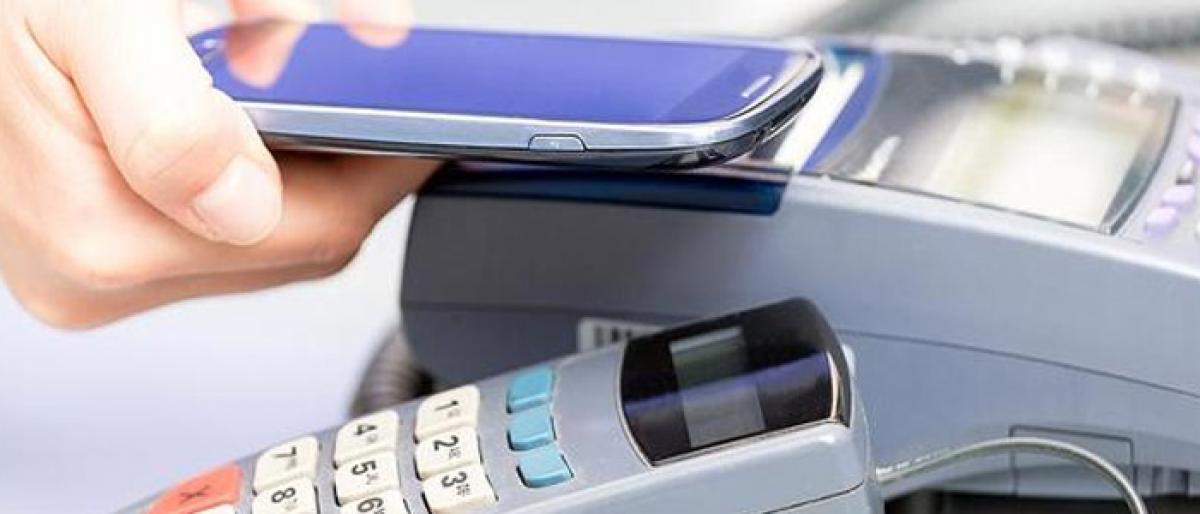Live
- Prisoner in Sangareddy Central Jail Suffers Heart Attack
- Targeting gut cells may open new way to reduce depression & anxiety
- ‘Daaku Maharaaj’ to kickstart musical promotions
- ‘Game Changer’ team teases with a new promo
- Nara Lokesh emphasises overhaul of govt. schools and mid-day meal program
- Amid turmoil, air pollution peaks in Bangladesh as temperatures fall
- Google Trends unveils list of most searched ‘Indian Movies of 2024’
- BGT 2024-25: Hazlewood signals readiness for Brisbane Test after training with full run-up
- Google Presents Deep Research AI Tool for Comprehensive Web Reports
- Share of top 50 stocks to total market cap at all-time low: Report
Just In

The School Education Department (SED) officials believe that the issue of fleecing students had grown to unmanageable proportions because it remained neglected.
Hyderabad: The School Education Department (SED) officials believe that the issue of fleecing students had grown to unmanageable proportions because it remained neglected.
According to sources in the department, the gaps left untouched have been posing a tough task for them to cope. The schools were asked to update their fee structure online. But, so far, only about 63 per cent private schools have updated the details.
"The department's direction had come following the appointment of Prof Tirupati Rao Committee to study and recommend the measures for fee regulations and mechanism to implement the same,” said a senior official from the SED.
But, the committee’s recommendation of allowing an annual fee hike of 10 per cent without any corresponding obligations on the part of private schools had made things more complicated. This goes against the spirit of various judgments in the regulation of fees in the private schools like TMA Pai Foundation versus State of Karnataka in 2002, Islamic Academy of Education versus State of Karnataka in 2003 and Modern School versus Union of India in 2004," the official pointed out.
In all these cases, it was upheld that the private schools could make reasonable surplus. But, it has to be invested only to improve the schools as education is a non-profit and charitable activity. Following the uproar against the committee’s recommendations, Deputy Chief Minister Kadiyam Srihari had directed the senior officials in the State Education Department (SED) to examine the report.
According to the Hyderabad School Parents Association (HSPA), Tripathi Rao committee recommendations had recommended freedom to schools to hike fee as high as about 800 per cent starting from LKG by the time a student completes his or her tenth class.
Contrary to this, the Central Board of Secondary Education (CBSE) had made schools affiliated to it to go in for cashless transactions from January 2017. A circular dated December 10, 2016 from the CBSE Secretary Joseph Emmanuel had made it clear to the schools to go online mode of financial transactions and the schools have already adopted the same. The CBSE's e-Payment facility includes, collection of fee for examination, affiliation and various activities, including payments to its examination functionaries, disbursement of salary to staff through bank transfers.
Besides, the schools should make all payments for availing various services, procurements, wages to the contract workers and other transactions etc., in non-cash mode. For this, the Board had asked the schools to conduct awareness programmes for parents and senior students to undertake promotional initiatives in their neighbourhoods to promote cashless transactions among common people.
When contacted, Director of School Education G Kishan said, "We are making it mandatory for the schools when they come for extension of the renewal of their school recognition from this year. We will ensure that all schools upload their fee structure on their portal specifically launched for this purpose.”

© 2024 Hyderabad Media House Limited/The Hans India. All rights reserved. Powered by hocalwire.com







